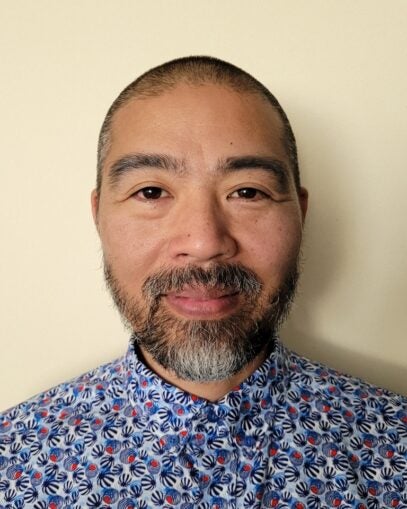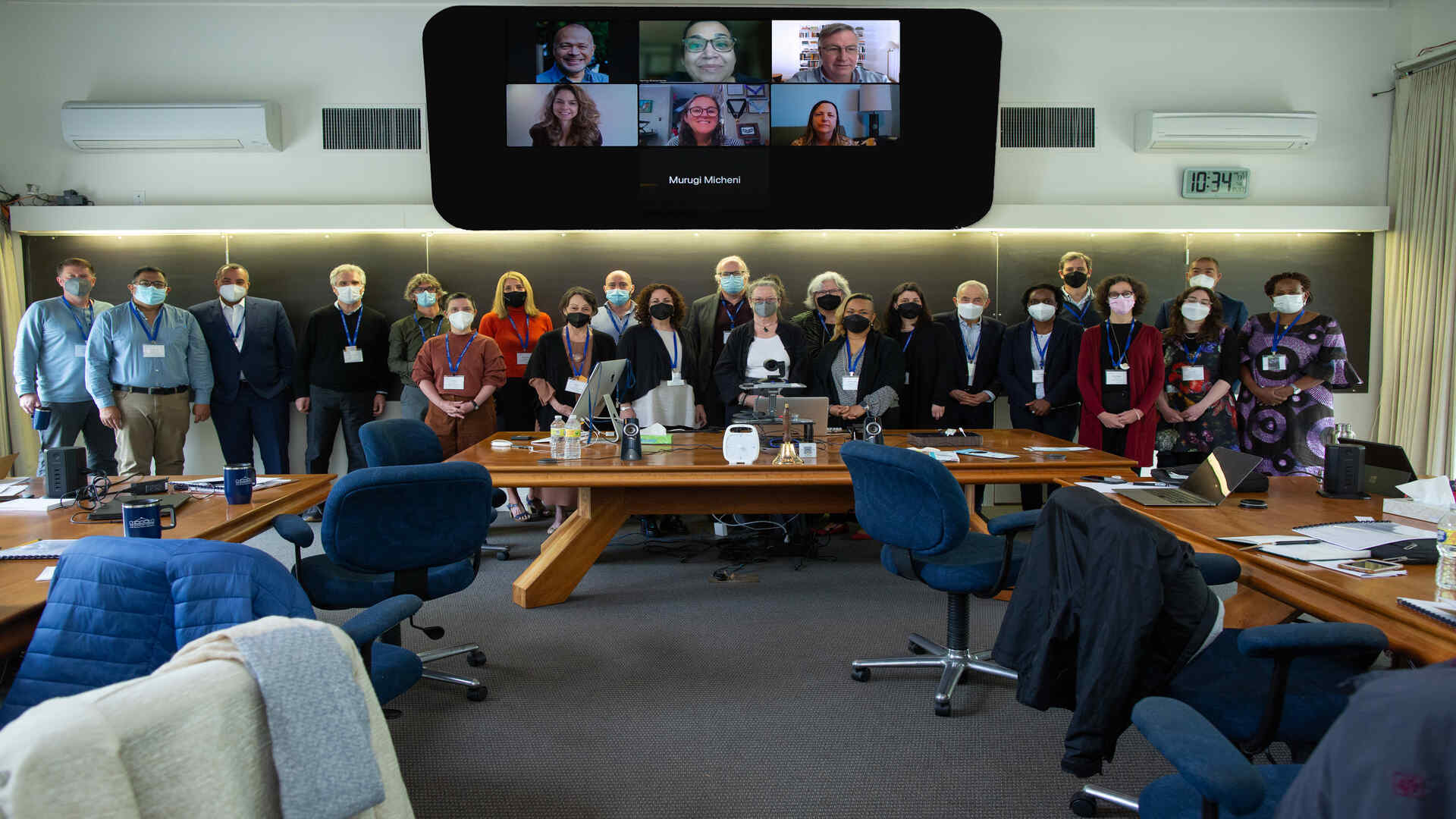*Interview conducted by Hannah Stewart
During the May 2022 meeting, “Optimizing Effective Coverage of HIV/STI Prevention and Care Programs: A Program Science Approach,” Banbury had the opportunity to speak with Elvin Geng, M.D., M.P.H. Dr. Geng is Professor of Medicine and Director of the Center for Dissemination and Implementation at Washington University in St. Louis. He received his M.D. and M.P.H. from Columbia University. He spoke to us about his experience in the public health field, including his work on HIV testing, treatment, and prevention.

Can you describe the work that you do at Washington University in St. Louis?
I do a combination of three things – things that, I think, a lot of folks in academic medicine do. I see patients – not as much as I used to, but I still do some clinical care. I have a lab, so to speak, even though we don’t have benches and test tubes. We do health systems and implementation research, collaborating with students, postdocs, colleagues, and external partners. Lastly, I direct the Center for Dissemination and Implementation, which Washington University and the National Institutes of Health have funded to promote and catalyze implementation science at the university and beyond.
What kind of health science dissemination are you focusing on at the Center?
I think there is a growing body of methods and perspectives that undergird what people call dissemination and implementation science, and we do things to promote that within Washington University. We invite speakers and hold grant review workshops, for example. We are going to have a film night where we will show a film about vaccine hesitancy, and then have experts on vaccine implementation weigh in on vaccine hesitancy around the world. The Center also gives out a variety of pilot grants, so that people with new ideas can get them off the ground. We offer consultations with faculty who work in implementation research. In general, we have a range of activities centered around dissemination and implementation.
I personally work on HIV; that’s my research agenda. But the Center doesn’t have a particular topic that it focuses on. Rather, it’s trying to promote this kind of thinking and these methods across a range of topics, many of which I don’t know much about. We support dissemination and implementation in physical therapy, end-of-life and palliative care, caregiver work, sleep science, nutrition, neglected tropical diseases, tuberculosis – we interact with different faculty to promote this set of methods.
How did you become interested in HIV, public health, and communicable diseases?
I went to medical school in the very late 90s in New York City. I was interested in HIV for a couple reasons. Number one is that, though it’s a complicated condition in its late stages, by the time I was practicing and learning to be a doctor, almost all of it was completely reversible if you made the right diagnoses and came to the right conclusions. People would be in the hospital with multiple opportunistic infections, and, within weeks or months, be recovering and going about their lives. From a clinical point of view, it was very attractive to be able to practice in area where I could make a really big difference.
I was also interested in HIV because it seemed to be at the intersection of so many behavioral, structural, and social justice factors. It remains to this day, but the stigma that surrounded HIV in the 80s and 90s is almost hard to describe now. People were so fearful of it. We don’t talk about this much, but in the early days of the epidemic, there were doctors who didn’t want to deal with patients who had HIV. So, it was a deeply stigmatized condition. Even more so, it has historically affected the most structurally disadvantaged folks in society: people who are poor, people who have mental illnesses, and people who struggle with substance abuse, for example. Even though I did not have a good sense of public health at the time, I understood that solving the HIV crisis would be bigger than just the medications that we would use.
How did you move into the public health field?
Through my M.D./M.P.H. program, I got a year of public health training and was able to learn more about that area. I’ve always been drawn to both clinical medicine and public health. I like having one-to-one interaction with patients and getting to know their individual stories in-depth, but I also appreciate having a wider view on issues that affect communities, populations, and regions, as well. I’ve always felt like those perspectives complement each other. I’ve never left clinical medicine completely; if I had my druthers, I would probably do a little bit more clinical work than I do now.
If you could impart one lesson onto your students, what would you most want them to learn?
That’s a really good question. I would say that, when it comes to learning, it’s important to go where your heart takes you. I say that in both a sentimental and a practical way. Being told that you need to learn certain things, and feeling like you need to learn certain things to do something or to get somewhere – I don’t think that’s a sustainable model for lifelong learning. In high school, you have to study things that you don’t like, and you may have to do that in college, too, but you cannot do that if you want to continue to learn throughout your life. So, I think it’s important that people find what they are passion about and follow that passion.
As an undergraduate at UC Berkeley, I created my own major, so I was able to take classes that interested me and weave them together. Once I went to medical school, I didn’t think about the lessons I learned for a long time. But now, in my day-to-day work, I draw from that experience as much as I do from medical school. I’m not an expert in anthropology or political science, but having been exposed to those areas allows me to have some sort of dialogue with people who are experts. So, it has been very helpful to my career in the long-term.
This is your first meeting at the Banbury Center. What do you think?
I think it’s great! First of all, obviously, this is a beautiful place. Second of all, given the hurly-burly of life, creating time and space to have these discussions is really valuable. I think it’s true that we always prioritize the things that are urgent, so we end up deferring the things that are important. Everyone in that room has more urgent things to do, but what we are talking about here today is very important. A place like this is the only kind of place where you can have these conversations; it has certain level of tranquility. I’ve been trying to not be online while I’m here, and while I can’t completely do that – I would love to shut everything off and be fully present – I feel lucky to be here.

